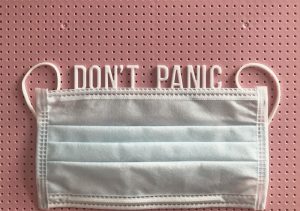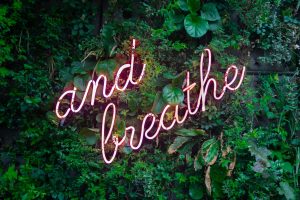
Jennifer is a participant on this year’s programme, which is all about developing the developer to be able to support clients in a coaching relationship. The next programme starts in November 2019. Find out more about Coaching and Mentoring with Head, Heart and Soul.
What we resist, persists
“What we resist, persists” is a well-used phrase in the field of personal development and something I have experienced as a profound truth. The problem for me is, I often forget to remember this wisdom!
The session on Psychological Drivers introduced during day three of our second module resonated least for me at the time. The concept was developed by Kahler (1975) who identified five common (unconscious) drivers that motivate us, which can also be at the root of dysfunctional behaviour. They are commonly framed as Transactional Analysis drivers and the thinking is that they tend to be rooted in early admonishment from teachers and/or parents who, in seeking to help us become fully functioning adults, often unwittingly offer their guidance and praise in a messy ‘too much or too little’ way that leaves us over- or under-playing certain behaviours.
When it was introduced by Glyn and Carole-Ann, my first thought was neutral… ‘I’ve done this before, it will be useful to have a refresher.’ We then completed the Driver Questionnaire.
My internal commentary shifted at this point into a more negative tone of voice: ‘Well that’s all a bit Micky Mouse. This just isn’t robust as a tool, I’m not sure how this will help with clients.’
I quickly dismissed the voice. I was recovering from being poorly, had done this before, and wanted to move on to new content, and the remainder of the day proved electrifying and insightful when we moved on to live coaching sessions, and supervision. I therefore returned home feeling satiated as a learner, and primed for my next coaching sessions, so I gave little thought to this grumpy interlude.
Six weeks later I was driving to work one morning following a back route that takes me though a small village and through fields. I choose this route partly because I enjoy the open vista, and also because the speed limit is technically 60 miles per hour so I feel as though I get to work faster. On this morning, I found myself stuck behind a slow driver, cursing my head off, contemplating whether or not to risk overtaking. ‘For f’s sake’, I heard myself say, ‘HURRY UP!’… My internal dialogue was immediately stopped in its tracks with a stunning moment of recognition.
So, this is what the Hurry Up driver feels like!
And – for the record Jen – you totally have this one. So, what are you noticing? It feels as though I am not moving fast enough. I am not getting enough done and slowing down evokes a feeling of anxiety, which quickly revs up to rage. How interesting!
Hurry Up
Shortly after this encounter I began to really pay attention to someone I know who is the embodiment of this driver. This person has a powerful and, at times, slightly intimidating presence; they also speak very directly, make decisions quickly and are forever frantically tap their feet whilst sitting. As I paid more attention, I began to imagine this person as the proverbial White Rabbit, pulling out a pocket watch and continually checking the time saying they were late for a very important date. As I played with this idea in my mind, coaching questions began to form:
- What or whom are you trying to out-run?
- What is it about speeding up that is so important?
- What if, instead of hurrying up, you were more present to now, what would that be like?
And, as if by magic, I found this person approached me the other day, twitching. I commented on this and their runaway feet and they said, ‘I know, I always need to be achieving something. I have to achieve.’
There was something moving and momentarily vulnerable about the way they said this. I felt that they had trusted me with a precious insight, whether or not they’d intended to.
This encounter caused me to re-visit the Drivers and become more curious about my initial reaction. I revisited each in turn and began to see how all of them show up within me, and to explore my experience from the inside. My new question became: ‘How can I use myself as instrument in service of my clients?’ What if I step into these drivers and think about how to work with them as clues to unlock great coaching questions?
This is what I came up with.
Be Perfect
Miss Be Perfect has always showed up for me in a work and academic context with a clear instruction – I must get all A’s, there should not be any typos in documents I produce, and it is imperative to maintain high standards at all times, including:
- Looking well-groomed and professional
- Being well organised
- Knowing my subject in any given situation
- Being prepared for every eventuality so I do not, God-forbid, get put on the spot and not know what to say or do. EVER.
For me, Miss Be Perfect is like the proverbial high-power Personal Assistant you might see in a programme like The West Wing. I imagine her in a spotless, tailored white shirt, heels and a pencil skirt. She is always one step ahead, anticipating needs, ready to pull a paper out of her leather briefcase with a casual ‘Yes, I already thought of that’, never breaking out into a sweat and always, always, IN CONTROL.
For many years I was in love with Miss Be Perfect. I wanted so much to be her. I wanted to leave a room and for people to say how brilliant I was at my job, how I had so much more potential and could easily take on a more high-powered role if I wanted.
But then I got that promotion, and for four years I was overwhelmed with imposter syndrome and the shameful feeling that I had been promoted beyond my capability. It seemed to me that all my cracks were painfully visible. It became impossible to be in control of everything because there was now too much of it, and this led to… a breakdown.
What emerged through the cracks of my breakdown was a glimpse of a far more powerful self waiting to be discovered. My authentic self. And so the dominant question for the next three years became, how can I get Miss Be Perfect to relax a bit and persuade Miss Authentic Self to join the team? How can I be braver and allow whole, imperfect, myself to show up?
Be Strong
Be Strong for me, is showing up right now in the way I am struggling to cope with my husband’s long-term illness. I feel overwhelmed, angry, sad, frustrated, resentful, helpless but I tell myself I am being selfish because I am not the one who is suffering. I have to find a way to be more empathetic, compassionate, supportive. Be Strong says don’t allow yourself to feel how you really feel and express the intensity of your emotions, because they are too much, they will burn your house down. Be Strong says find a positive spin, have a sense of well-informed optimism, find a solution, you are not allowed to give in. Be Strong tells me I am resilient, that nothing can break me, that I will be OK.
Be Strong is fierce and awesome. I admire her. And yet she is also a hard task mistress. Unchecked, she can be relentless.
I recognise that, for me, she needs an ally for balance. Her name is Be Vulnerable. As Brene Brown says, ‘Vulnerability is our most accurate measure of courage.’ It takes courage to admit you don’t know what to do. It is brave to admit you can’t fix something. It takes guts to let your house burn down. Because sometimes things need to be set alight and tossed into the flames. We need to let go of old identities, to stop holding on so tightly to dreams that have dissolved, to weep over our broken parts and shattered remains. Be Vulnerable says it’s OK for things not to be fixable. Be Vulnerable says death is a natural part of life, a benign dance between the seasons of spring and autumn, summer and winter. Be Vulnerable says new growth always arises from scattered ashes. Be Vulnerable says, let go, you can trust me.
Try Hard
The last time I filled in the questionnaire in 2005, Try Hard was my highest score. Try Hard for me is about making a difference. It shows up as a passionate mission to change the world and make an impact. My life must be meaningful, I must have contributed to the betterment of others, I must be of service. This all sounds really positive, but the downside is that I struggle to relax.
It’s like an existential quest for relevance and worthiness fueled by an intense earnestness that frankly, can become a complete buzzkill. I feel like Try Hard is a twenty-something tech-geek environmentalist young man who is a bit over-worthy for his own good, and every now and then I need to take him to a bar where we can drink tequila slammers and dance on the tables and laugh at inappropriate jokes. And after a good night out, we sit down for breakfast the next morning and talk about Finding Flow instead of Trying Hard and this seems to settle him down nicely.
Please Others
So lastly, to the Please driver. I realise now this has been the one hiding in plain sight for me! I had told myself I definitely don’t do this one. I can say no to people. I hold my boundaries. I don’t do things I don’t want to just to make other people feel better. I am assertive and confident in dealing with people, whilst also considerate and kind.
Pants on fire!!!
What I realise, when I feel my way into this one, is that Please Others shows up for me every time I coach someone and feel pulled towards taking responsibility for their development. I feel it when I find myself searching a little too hard for the elegant, clever question that will tap their shell on a sweet spot and crack them open; when a longing for my client to experience an epiphany rises; every time I luxuriate a little too long as they reach for a handkerchief to dry their eyes glazed with tears; in the anticipation of looking forward to seeing them to hear how much our last session shifted their model of the world; and I hear it subtly in the tone of my voice in supervision as I finally begin to believe that I may indeed have become a good coach.
The truth is that we are all just Bozos on the bus of life. We are all magnificently messy and fabulously fucked up, and we are all each other’s teachers and students in an ongoing dance. Our egos are continually on guard, trying to keep us safe, imploring us to be capable, coherent, worthwhile individuals, always striving for more. And yet our identity, as human beings, is that we are always enough. We are always enough when we are human.
And when we acknowledge that we are all, simultaneously, OK and not OK at the same time, we can experience more joy and ease and flow and connection.
Connection. This is why, most of all, I love coaching. I love connecting to people. To the real authentic people that lie beneath the masks we all wear to protect our most beautiful, fragile and magnificent selves. The wonderful irony is that the selves that lie behind those masks, the selves that we hide in the shadows of shame and ‘not-enough-ness’, are the very selves that we all want to see, shining in the full glory of our light.
This is why coaching must be done head, heart and soul, because the goal is not to become a good coach. The goal is to become a more authentic human being, which goes way beyond any notion of being either good or bad.
And when we are connected, human to human, we will always find it in our hearts to forgive ourselves and love ourselves and embrace all our Be Perfect, Please Others, Be Strong, Try Hard, Hurry Up faces.
Coaching and Mentoring with Head, Heart and Soul starts again in November 2019. Get in touch with us to find out more about the programme and how it can help you develop yourself and your coaching style.











